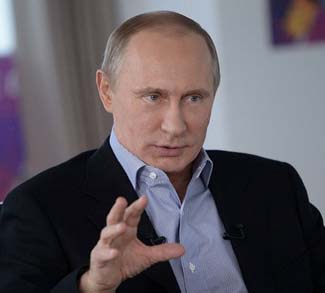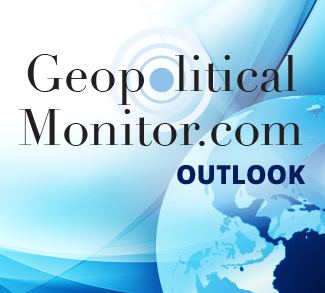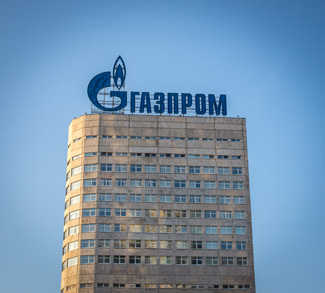In an unexpected and swift counteroffensive, Ukrainian forces have reversed several territorial gains made by Russian troops in several months since the Kremlin decided to launch a “special military operation” back in February. Moreover, they have captured large amounts of weapons, tactical gear, hardware, armor, and equipment left behind by the Russians. While hardly conclusive, these facts on the ground are significant for the following reasons:
First, the Ukrainian counterattack has generated reasonable doubts about the effectiveness of Russian capabilities related to strategic intelligence, conventional military preparedness, and logistical performance. Therefore, after achieving decisive victories in the 2008 Russo-Georgian War and in Moscow’s intervention in Syria on behalf of the regime headed by Bashar Al-Assad, there is a growing impression that Russian hard power has been overestimated, even by specialized analysts. It must be kept in mind that, even though they are not always accurate, impressions matter because they shape consequential decisions made in the practice of statecraft. The Russians are no longer automatically seen as invincible.
Second, Ukraine has not fallen like a house of cards and the Ukrainian government has not collapsed. Despite the existing asymmetries, Ukrainian forces are not afraid to engage the Russians. Although the flow of NATO weapons and hardware has bolstered Kiev’s strength, it is pertinent to highlight that fighting is not merely a kinetic pursuit. As an existential struggle, it is heavily shaped by factors whose influence on collective psychology cannot be neglected.
Third, foreign supporters of Kiev have been convinced that a Ukrainian victory is perhaps achievable. For Washington in particular, this means that Ukraine can represent a spearhead that can deliver a full-spectrum strategic defeat for Moscow or, at the very least, provoke a disaster comparable to the ill-fated Soviet invasion of Afghanistan. The achievement of such outcomes would be a major victory for the United States. Russia would lose its status as a great power, Moscow would remain isolated from key European states with which it could have developed game-changing partnerships (i.e. Germany), the exports of the US military-industrial complex would be bolstered considerably, and no lives of American servicemen would be lost.
Fourth, in response to their setbacks, Russian forces have targeted Ukrainian infrastructure, especially nerve centers and circuits of its power grid. Such heavy-handed measures are a reminder that Russian forces have both the political determination and the material ability to inflict significant damage. Thus, when President Vladimir Putin claims that such attacks are merely warning shots, the implicit threat is that ‒ if necessary ‒ the Russians will contemplate strikes with heavier impacts. Even if the Russians are ultimately unable to conquer Ukraine, they still might attempt to make it so that no one else can have it, including the Ukrainians themselves. In other words, the Kremlin does not discard the pursuit of a “Carthaginian peace.”
Finally, the seismic shockwaves of the Ukraine war are seemingly unfreezing tensions in the post-Soviet space, as demonstrated by the initiation of military hostilities by Azerbaijan against Armenia, a landlocked state strategically anchored to Moscow’s geopolitical orbit. Although a ceasefire has been reached, tensions remain high. Another meaningful development pointing in a similar direction is the attack launched by Tajikistan against Kyrgyzstan over unsettled territorial disputes. Both Central Asian states belong to the Collective Security Treaty Organisation (CSTO) and the Shanghai Cooperation Organisation (SCO). These geopolitical by-products ‒ regardless of whether they were induced by spontaneous opportunism or masterminded by external forces ‒ demonstrate that several corners of the so-called “near abroad” could eventually be engulfed by the flames that the Ukraine war ignited. In this regard, the fact that Russia’s sheer geopolitical weight was not powerful enough to deter the eruption of those clashes is telling.
Deepening Political Problems in Moscow and Kiev
War is much more than the continuation of politics through other means. According to Sun Tzu, war is a vital matter for the state because it represents a road that can lead to either worldly glory or to utter ruin. Thus, motivated by the need to seek a higher degree of national security, but also influenced by the enduring echo of the Russian imperial tradition, the Kremlin embarked on a dangerous gamble. Specifically, as RAND Corporation analyst Clint Reach explains, the ultimate goal of the Russian invasion has been to push NATO away from the heartland of the Eurasian Grossraum in order to give birth to a multipolar correlation of forces – a configuration that would provide a suitable environment for Russia to reassert its position as a revitalized great power and satisfy unfulfilled national interests related to access to both capital and technology.
Nonetheless, a victory for Russian forces seems elusive, at least for the time being. Growing anxieties over how events are unfolding on the battlefield are creating problems for President Vladimir Putin. In fact, hardliners in Moscow are displeased by the lack of incremental progress, and some of them apparently believe that a more aggressive approach is required in order to achieve a reasonable degree of success. Some members of the ruling siloviki clan are likely unsatisfied with what perceive as incompetence and indecisiveness. Likewise, the spillover of the war can reach Russian soil in unexpected ways, as the assassination of Daria Dugina (daughter of Alexander Dugin, the chief ideological theorist of civilizational Eurasianism, a hybrid geopolitical model whose tenets have intellectually shaped the behavior of Russian foreign policy in recent years) in the outskirts of Moscow shows.
Moreover, in a crass analytical mistake, the Kremlin underestimated the strength of Ukrainian nationalism. Russian troops have not been greeted as liberators in the streets of Ukrainian cities and towns that have been invaded and held. Instead, the Russians have encountered a fierce willingness to resist. Paradoxically, the Russian efforts to delegitimize Ukrainian nationhood and statehood are backfiring. Despite the various common denominators shared by both Slavic nations, the Ukrainians have fully embraced what ‘the concept of the political’ ‒ as originally defined by Carl Schmitt ‒ is all about under confrontational conditions. In other words, the collective identification of an external enemy is a powerful incentive to join forces and fight for the survival of a polity. In an ironic twist of fate, Vladimir Putin has inadvertently bolstered Ukrainian nationalism.
In this context, Putin knew that he was not only making a dangerous bid to reclaim the coveted role of Russia as a great power, whose hegemony prevails in the post-Soviet space. He was also keenly aware that his gamble included, amongst other things, the stability of his own internal political position. In other words, if the invasion of Ukraine produces a military and strategic catastrophe, his reign is imperilled and, in turn, the strength of his domestic rivals would be increased. In a moment like this, extraordinary circumstances require extraordinary responses. Therefore, the Kremlin is increasingly relying on the purchase of Iranian UAVs and North Korean artillery shells to replenish the loss of hardware, along with the recruitment of unsavory individuals (i.e. convicts) by the Wagner Group – a Russian private military company with close ties to the country’s security services. Furthermore, some Russian figures are outspokenly promoting the idea of a full wartime mobilization. The implementation of such a measure would be interpreted as a sign of despair. Although it might reinforce the Russian war effort in terms of manpower and political resolve, crossing said event horizon is potentially troublesome because it would entail higher casualties (which would be highly detrimental in the context of the various efforts undertaken by the Russian state to counter its demographic decline) and social discontent at home, as well as an explicit recognition that the very survival of the Russian state is in peril.
Hence, Moscow is caught in a very unfavorable situation in which there is no easy way out. Doubling down would require a massive effort, a great deal of bloodshed, potentially counterproductive political fallout, and all with no guarantee of success. Nevertheless, as geopolitical analysts like George Friedman and Sergei Karaganov have acknowledged, Putin cannot afford to lose, even if that means that what he originally had in mind as an idea of victory needs to be redefined or minimized. Thus, the Kremlin might attempt to hit key nerve centers of the Ukrainian state (governmental buildings, industrial facilities, logistical hubs, infrastructure) and harness the coming winter so that the impact of its deliberate asymmetric disruptions in energy supplies for European consumer markets is maximized. Otherwise, a failure in this risky campaign would lead to rising upheaval at home and an accelerated decline of Russian national power.
Under such conditions, the Russian Federation could face even harsher problems. For instance, the perception that Russia is no longer a great power would encourage the reactivation of conflicts in the post-Soviet space, unleashing war, the outbreak of ethnic animosities and inter-ethnic violence, and regime change. If Moscow is unable to honor the security guarantees under CSTO or economic incentives through the Eurasian Economic Union, the credibility of those multilateral frameworks would be irreparably damaged. If the Russians are no longer feared, the Kremlin’s allies ‒ notably, Belarus, Armenia, certain Central Asian republics and breakaway pro-Russian enclaves like the Donbass, Abkhazia, South Ossetia and Transnistria ‒ would be pretty much on their own. Russian partners elsewhere (such as Syria, Serbia, Nicaragua, Venezuela, Cuba) would have to find new sources of patronage or seek some sort of accommodation with the West.
Is Russia doomed? Judging by the historical record, it is hard to tell. The Russians have indeed suffered crushing defeats like in the Crimean War, the Russo-Japanese War, and the loss of strategic depth in episodes such as World War One and the downfall of the USSR. Nevertheless, a long-range perspective reveals that Russia has also managed to revitalize its strength after disasters and even vanquish ‒seemingly against the odds ‒ powerful rivals such as the Mongols, the Teutonic Knights, the Kingdom of Sweden, Napoleonic France, and Nazi Germany. Yet this time the Russian state is facing a tremendously uphill battle, not just in the military operational theatre. The full projection of Western economic firepower is undermining Russia’s ability to modernize its military-industrial complex, reverse its demographic crisis, revive economic dynamism, and develop comparative advantages designed to harvest the benefits of the so-called “Fourth Industrial Revolution.” Then again, Russia retains its nuclear arsenal, control of vast deposits of all sorts of strategic commodities and ruthless intelligence services capable of orchestrating hostile ‘active measures’ all over the world.
Nonetheless, a weaker, cornered and revanchist Russia might still be dangerous, particularly if Vladimir Putin is eventually replaced by more hawkish cadres. If the Russians suffer irreversible losses and they think that they have nothing else to lose, then the Kremlin could contemplate previously unthinkable options, such as the use of tactical nuclear weapons. Likewise, the collapse of the Russian Federation could be even messier than the dissolution of the Soviet Union. Since it would suddenly create a massive power void, the chaotic process could instigate regional conflicts, geopolitical tensions, external predation, the emergence of dysfunctional statelets ruled by strongmen or warlords, waves of social unrest and a great deal of uncertainty surrounding the country’s vast nuclear arsenal.
On the other hand, despite a stronger morale as a result of its recent tactical breakthroughs, Ukraine is also facing problems which threaten to impact its ability to wage war. Just a few months ago, President Volodymir Zelensky fired senior government officials whose spheres of responsibility are directly related to national security, including the head of the country’s intelligence service (SBU) and the prosecutor general, along with dozens of their subordinates, amidst accusations of treason. Considering the destabilizing consequences of said decision, the dismissal of such figures could indicate either serious political disagreements in Kyiv, external diplomatic pressures, or even infiltration by Russian intelligence agencies. Moreover, the continuation of the Ukrainian war effort ‒ especially because the goal is seemingly to recover every single inch of Ukrainian soil taken by the Russians, including Crimea and the Donbass ‒ is a challenge which will require copious amounts of money, weapons, and troops. In addition, the Ukrainian economy has been badly damaged by the disruptions unleashed by the war. Unemployment, inflation, volatile exchange rates, the exodus of millions of Ukrainians, and unsustainable financial imbalances represent major obstacles which weaken its sustainability in the short term. Without a constant and generous flow of foreign money, the country risks implosion.
Nonetheless, Ukraine’s greatest political predicament is external so there is not much it can do about it now that winter is coming. As British historian Niall Ferguson argues, the prospect of an energy crisis in Europe ‒ which could conceivably reach Weimar-like proportions in terms of economic turmoil and popular discontent ‒ and potential political wild cards on both sides of the Atlantic will test the cohesiveness of the Western bloc and the continuation of support for Ukraine. Needless to say, the ramifications of these scenarios might compromise Kyiv’s war effort. In this respect, the combined impact of widespread quantitative easing, the weaponization of energy supplies by the Russians, and blowback from Western sanctions against Russia can bring unintended consequences that alter the course of the conflict.
The views expressed in this article belong to the authors alone and do not necessarily reflect those of Geopoliticalmonitor.com




